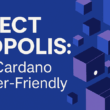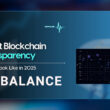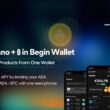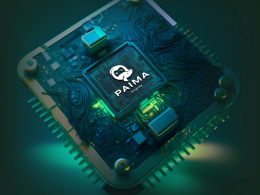Disclaimer: This article should not be considered as expert advice or an endorsement of the project. The article was written based on information provided by the project team during an interview, the proposal itself, and additional research conducted online. While every effort has been made to ensure accuracy, personal biases may have influenced the writing. Therefore, voters are strongly encouraged to conduct their own thorough research and due diligence on the proposals they intend to vote on. This article should be used as a starting point for further investigation and not as the sole basis for making a voting decision.
A Quick Rundown of The Proposal
Project Description:
The Koios Evolution proposal is centered around enhancing the infrastructure layer of the Cardano ecosystem. It plans to introduce a lighter, more accessible query instance through Koios Lite, in addition to continued development and support for popular Koios gRest query layer, while continuing on the open-source API journey facilitating queries across various Cardano networks. Additionally, the proposal includes integration with AI platforms and a commitment to support various open-source projects.
Link to Ideascale proposal: Link
Proof of Reputation
A. Proven Track Record
The project team has a track record of making significant contributions to the Cardano ecosystem.
Previous initiatives, such as Guild’s Operator Scripts (cntools, gLiveview, etc.) and the Koios Decentralized API, have proved their skill and dedication.
Here are the links:
- Guild’s Operator Scripts: https://github.com/cardano-community/guild-operators
- Koios Decentralized API: https://koios.rest/
B. Previous Project Catalyst Proposals
The Koios team submitted and completed a proposal in Project Catalyst Fund 6. Here are the details of their proposal for the Koios Elastic Cardano Query Layer.
C. Community Engagement
Active participation in forums, social media, and conferences has enhanced their reputation. They also continue to independently support work on Cardano Updates.
What is the amount requested by the project?
The proposal requests 400,000 ADA, which constitutes approximately 4.6% of the total fund in the specified category (i.e., 8,685,600 ADA).
What problem is this project solving?
The infrastructure layer of Cardano currently faces challenges related to centralization, as a limited number of service providers act as the primary gateways to access blockchain data. This highlights the need for a more decentralized and resilient infrastructure within the ecosystem.
Impact
Koios Lite: It aims to make Cardano’s blockchain more accessible. By introducing a lightweight way to run an instance, it saves resources and allows providers to onboard with ease.
AI plugins: The inclusion of AI plugins in the Koios Evolution proposal aims to enhance interaction with on-chain data for AI applications. By offering these plugins, Koios aims to increase accessibility to real-time blockchain data. This development allows developers across various sectors to easily integrate and use blockchain data in their AI applications, opening new possibilities for creativity and data-driven insights..
The Koios Evolution proposal further aims to transition Koios into a self-sustainable project, enhancing its resilience and long-term viability within the Cardano ecosystem.
Feasibility
The feasibility of the Koios Lite Node project is supported by the team’s expertise in the Cardano ecosystem, a history of successful projects, and a transparent approach to development and budgeting. The team’s commitment to open-source coding, regular communication with the community, clear milestones, and adherence to budget plans contributes to a strong case for the project’s timely and successful completion.
Value For Money
The introduction of Koios Lite aims to facilitate broader community participation and reinforce decentralization. Considering its open-source commitment and its potential to amplify community tools, the project presents a cost-effective proposition for the Cardano ecosystem.
Now, Let’s Dive into the Details
What problem is this project solving?
Cardano’s infrastructure is currently grappling with issues of centralization, where limited projects act as primary channels for blockchain data access and processing. This centralized framework creates a bottleneck, making it less robust and user-friendly.
Specifically, there’s a growing demand to:
- Run lightweight instances that consume fewer resources.
- Adapt to the increasing need for querying data as the ecosystem evolves with new projects.
- Maintain a stable infrastructure that offers multiple public instances across networks, especially until certain tools become self-sustainable.
- Provide support across a range of open-source projects and tools to ensure smooth user experiences.
- Integrate with AI platforms, which requires a seamless and educative interface for newcomers to engage with on-chain data.
These concerns highlight the current infrastructure’s inability to scale efficiently and inclusively, making it imperative to address them for Cardano’s sustainable growth.
What is the solution offered by the project to solve the above mentioned problem?
The Koios proposal aims to tackle these challenges through:
1. Koios Lite: This feature aims to make Cardano more accessible.
The impact of Koios Lite can be seen in the following areas:
Accessibility: By offering a lighter way to run an instance, Koios Lite allows more providers to participate, potentially broadening the reach of the Cardano network and making it more accessible to various users and developers.
Resource Efficiency: The light-resource nature of Koios Lite provides a more cost-effective option for querying data from the chain, helping to onboard new instance providers and cater to different needs and resources.
Decentralization: By enabling a wider range of participants to host instances, Koios Lite contributes to the decentralization of the Cardano infrastructure, aligning with the overarching goal of creating a more distributed and resilient network.
Koios Lite’s provision of a historical view of the chain enhances the understanding and analysis of blockchain data, enabling more insightful applications and services within the Cardano ecosystem.
2. Ongoing Development Activities on gRest: The constant improvements on gRest ensure that the infrastructure remains responsive and innovative. This ongoing development is key to meeting the evolving needs of the Cardano ecosystem, keeping it aligned with technological advancements.
3. Maintaining Support for Cardano Infrastructure with Open-Source & Elastic API Layer: Koios’s API allows querying across Cardano’s blockchain, providing a vital layer of flexibility. Whether using Koios as a light web service or running an extendable instance, it ensures high availability support globally. This is a strategic move towards a more decentralized and resilient infrastructure that can adapt to various demands.
4. Integration of AI Plugins: By integrating with AI Plugins and powering real-time blockchain data, Koios helps bridge the gap between AI and blockchain technology. This not only enhances Cardano’s reachability in the AI world but also simplifies the learning curve for new entrants, making the ecosystem more inviting.
5. Support for Open-Source Projects and Tools: Koios has been providing extensive support across different projects, particularly those that are open-source and free. This support is a cornerstone of Koios’s value addition, fostering a community that encourages innovation, collaboration, and growth.
How accessible will be the solution to users?
The Koios solution is designed for high accessibility, catering to both seasoned developers and newcomers in the Cardano ecosystem. It offers a lightweight instance via Koios Lite for efficient interaction, continuously updates through gRest for adaptability, provides a flexible API layer for global reach, integrates AI for modern applications, and emphasizes open-source support to foster community collaboration and growth.
Feasibility of this Project
The feasibility of the Koios Evolution proposal is determined by its defined goals and the team’s expertise. An examination of the primary objectives and feasibility validation reveals the team’s capabilities and the structured approach they intend to follow within the Cardano ecosystem.
Main Goals:
The project’s primary objectives include the development of Koios Lite, continuous work on gRest, infrastructure maintenance, continuous support, and the creation of plugins for AI platforms. Each objective has a corresponding strategy based on the team’s knowledge of blockchain technology and project management. The progress will be evaluated against specific targets, keeping in line with the needs of the Cardano ecosystem.
Team Expertise and Roles:
The Koios project team comprises:
Project Leader: Experienced in blockchain and oversees the project.
Blockchain Developers: Focused on Cardano’s development and feature implementation.
Quality Assurance (QA) Specialists: They handle testing to ensure functionality.
Community Manager: Engages with the Cardano community.
Documentation Specialist: Produces user guides and documentation.
The combined knowledge of the team aligns with the project’s requirements, aiming for the proposed outcomes.
Trust and Accountability:
The team’s previous work in the Cardano ecosystem, their open-source code available on GitHub, and their regular updates to the community provide evidence of their accountability. They have stated their intention to complete the project within the set budget and timeline.
Approach and Milestones:
The approach adopted by the Koios Evolution proposal reflects a systematic and phased methodology, emphasizing clear deliverables at each step. This methodological progression ensures that the project remains structured and targeted, optimizing resource allocation and ensuring that the proposed outcomes are achievable within the stipulated timeframe.
The project is divided into specific milestones, each with tasks, deliverables, and success metrics:
Milestone 1 (3 months): Focuses on developing and integrating Koios Lite.
Milestone 2 (3 months): Aims to create plugins for AI systems.
Milestone 3 (12 months): Work on gRest for performance and integration with new projects.
Milestone 4 (12 months): Maintenance of public instances with a move towards self-sufficiency.
Milestone 5 (12 months): Emphasis on continuous support and user feedback-driven improvements.
Project Dependencies
This project’s success is dependent on several major dependencies:
API Integration: For successful data retrieval, seamless integration with Cardano’s APIs is critical. Collaboration with IOG (Input Output Global) is required for API alignment.
Development of External Plugins: Integrating AI plugins involves coordination with AI platform providers such as OpenAI. Coordination and adherence to their guidelines are critical.
Community Involvement: The success of the initiative is dependent on community involvement. Regular updates, open communication, and the inclusion of comments will be critical.
Budget Breakdown
The budget for the proposal is designed with a clear and focused approach to efficiently allocate funds to different aspects of the project. The details are as follows:
Development Costs:
- Team: 5 members
- Hours: 25 hours per week, 52 weeks, totaling 1,300 hours
- Hourly Rate: $60
- Total: $78,000
Infrastructure Costs:
- Infra Cost + operations for Koios Lite + gRest across mainnet, preview, preprod & guildnet
- Total: $12,000
Support and Maintenance Costs:
- Hours: 10 hours per week, 52 weeks, totaling 520 hours
- Hourly Rate: $45
- Total: $23,400 per year
Total Budget: 113,400 USD, equivalent to 400,000 ADA.
The merits of this budget include the transparency of allocation, the focused approach on the necessary hours for development, and the comprehensive coverage of all key areas of the project, including development, infrastructure, and ongoing support.
Impact Assessment
The impact assessment for the project focuses on measurable outcomes, quantifiable data, qualitative measures, and the viability of the method, as described below:
Measurable Outcomes:
The project is divided into significant milestones. These milestones detail the outcomes expected from each phase:
- Milestone 1: Develop Koios Lite (3 months)
- Success Criteria: Successful development and deployment of Koios Lite, stable integration with gRest, and addition of new instance providers.
- Milestone 2: Create AI platform plugins (3 months)
- Success Criteria: Successful plugin creation and deployment, and the integration of a number of AI platforms.
- Milestone 3: Ongoing gRest Development Activities (12 months)
- Success Criteria: Successful integration of new projects, consistent performance of gRest.
- Milestone 4: Infrastructure (12 months)
- Success Criteria: Smooth operation of public instances across networks.
- Milestone 5: Ongoing Support (12 months)
- Success Criteria: Satisfactory level of assistance and positive user feedback.
Quantifiable Data Includes:
- Adoption: The rate of adoption by developers, instance providers, and consumers. A higher rate demonstrates the alignment of the solution with the community’s needs.
- Completion of Outcomes: Each success criteria point will be tracked publicly in real-time on GitHub.
- Traffic Volume: The traffic handled by Koios Lite Node applications, reflecting the solution’s contribution to the Cardano network’s scalability and efficiency.
Qualitative Measures Include:
Continuous collection of qualitative feedback from users on their experiences with the Koios gRest and Koios Lite, focusing on setup, performance, and overall impact. This feedback aids in ongoing improvement and ensures that the solution remains relevant and valuable to the community.
Is This Method Viable?
Yes, the method appears to be viable. By outlining the project into milestones with clear success criteria, and tracking progress through quantitative and qualitative metrics, the approach ensures transparent, systematic progress.
Sustainability:
The Koios Evolution project’s sustainability requires a multifaceted approach. The project aspires to create a self-sustaining model by monetizing specialized services, such as premium API access for expert users, while keeping key functionality available to the general public.
Business Model and Monetization Plans for Future Sustainability:
The project’s long-term viability relies on a balanced business approach. Essential functionality is planned to remain open-source and free to use, while the project may generate revenue by offering premium services. These premium services for corporations and advanced users could encompass enhanced analytics, priority support, and advanced data querying capabilities. The strategy aims to achieve financial sustainability by addressing both general community needs and specific user demands.
Risk and Contingency Planning:
Every project faces potential risks and challenges.
Risk Identification:
1. What are the possible risks or challenges that might impede the project?
Market Acceptance: There is a chance that the market would reject the proposed enhancements. This could be due to existing solutions matching user demands or to aversion to change. To address this, the project will actively connect with the community, solicit feedback, and iterate based on user preferences.
Technological Difficulties: The integration of AI plugins and the development of Koios Lite may face technological difficulties. To solve this, the team will perform extensive research, consult with specialists as needed, and maintain a flexible development approach in order to overcome unexpected technological challenges.
Regulatory Changes: As regulations surrounding blockchain and AI evolve, the project’s viability may be jeopardized. To remain compliant, the team will regularly monitor legislative developments and adapt the project’s features and strategies accordingly.
2. Will the Project be Open-Sourced?
Yes, the project is in alignment with open-source development standards. The codebase, APIs, and necessary components are to be released under open-source licenses, as stated by the team. This approach facilitates collaboration and community involvement, which contributes to the project’s long-term stability and growth.
All the code for Koios development will continue to be available under the cardano-community/koios-artifacts repository on GitHub, and new ones will be mapped there as well.
3. Are there contingency plans if they are not funded by Catalyst?
In the event that Catalyst funding is insufficient or the proposal is rejected, the project team has established the following contingency plans:
Exploring Alternative Funding: The team will actively pursue alternative funding sources such as grants, private investments, or collaborations with organizations whose interests are aligned with those of the project.
Scaling Down Scope: If full financing is not available, the team will explore reducing the project’s scope while keeping important features. This would allow for the development of a leaner version of the project, which could then be incrementally expanded over time.
Community Support: To cover the funding gap, the team will seek crowdfunding or community contributions from the Cardano community.
Conclusion.
In conclusion, the Koios Evolution proposal aims to enhance Cardano’s infrastructure by addressing concerns of centralization and improving accessibility. With a clearly defined plan, the proposal is supported by a team of seasoned professionals known for their capabilities and reputability. By aligning technological innovation with community needs and sound business planning, it embodies a thoughtful approach that could pave the way for more accessible, efficient, and creative uses of blockchain data in various sectors. Despite potential challenges, contingency plans have been established to ensure adaptability. Its success could reinforce Cardano’s commitment to decentralization, innovation, and community-driven development.










